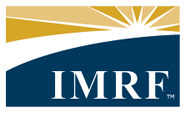Impact of Recent Investment Returns on Employer Reserves, Employer Funding Status and Employer Contribution Rates in 2004
February 11, 2003
Executive Summary
The estimated investment return through December 31, 2002, for IMRF is a negative 9.1%. As a defined benefit plan, this return has no impact on the benefits for either active or retired IMRF members. All member benefits are guaranteed. However, this return will impact individual employer reserve balances, individual employer funding status, and future individual employer contribution rates. We encourage each Authorized Agent to share this memorandum with your unit of government’s chief financial officer, other officials, and governing board members.
Background
As a defined benefit plan, IMRF is designed to be pre-funded. The lump sum needed to pay a lifetime pension should be available when an employee retires. This differs from a “pay-as-you-go” plan—like Social Security—where money collected today is used to pay today’s benefits.
The Illinois Pension Code [40ILCS 7-172(b)(2)] requires amortization of any unfunded liabilities over the remainder of the period allowable under generally accepted accounting principles. Those principles have a full funding goal.
2002 Investment Returns
As you know, 2002 has been another very difficult year for investments. The S&P 500 lost 22.11%. Through December 31, 2002, IMRF’s investment return was approximately a negative 9.1%. Year 2002 investment losses totaled approximately $1.3 billion. This loss comes on the heels of a negative 6.08% return in 2001 and a positive 1.87% return in 2000.
Smoothing Technique
To determine employer rates, IMRF uses a five-year averaging technique for investment returns in order to minimize large fluctuations in employer rate calculations. It is a common technique used in the pension industry.
For 2002, IMRF will be adjusting its assumed investment loss of $1.2 billion by 20% of the difference between the actual investment return and assumed investment return for each of the years in the 1998-2002 period. Thus for actuarial purposes, IMRF’s investment return will be approximately a positive $600 million.
Impact on Employers
Employer Reserves
By statute, IMRF must credit approximately $600 million to member and retiree reserves. Investment losses in 2002 will require IMRF to charge opening employer reserve balances approximately $1.9 billion. That translates into about a 28% charge—reduction—on each employer’s opening balance.
Employer Funding Status
IMRF’s 2002 overall funded status on an actuarial basis is expected to decrease from 106.4% as of year-end 2001, to 100.0% at year-end 2002. However, on a market value basis (which does not use the five-year averaging technique), IMRF’s funded status is projected to drop from 97.7% to 80.3%.
Employer Contribution Rates
The impact on employer contribution rates is difficult to forecast since each employer has a unique rate affected by its own demographics. However, the poor investment results of the past three years have begun to push the average employer contribution rate higher.
The average employer contribution rate for the regular plan was 5.87% for 2002 and is 6.22% for 2003, an increase of 35 basis points or 6%.
A rough estimate of the average employer contribution rate for the regular plan for 2004 is 8.16%, an increase of 194 basis points or 31%. The impact on individual employers will vary widely. As individual employers’ overfunding is depleted, there will be non-proportional rate increases not factored into the estimated average for 2004. The potential for even greater rate increases exists for 2005 through 2008.
IMRF Meetings
Due to the significance of the potential impact on individual employers and the complicated concepts, IMRF will schedule a series of meetings throughout the state to answer any specific questions you might have. The dates and locations will be provided in a subsequent General Memorandum. The meetings will be held after you receive your 2004 Advance Rate Notice. IMRF will mail the Advance Rate Notices in April 2003.
Questions
If you have any questions regarding the information presented in this memo, please call 1-800-ASK-IMRF (1-800-275-4673) and ask for IMRF Chief Financial Officer Richard DeCleene.

